The Centr@tec programme disseminates the benefits of Horizon Europe funds to companies in Salamanca
Last week, the "Horizon Europe Day: Key Concepts and Experiences" was held, an activity framed within the Centr@tec programme and organised by the Institute for Business Competitiveness of Castilla y León (ICE) in collaboration with the University of Salamanca through the AIR Institute.
The presentation room of the R&D&I building at the University of Salamanca welcomed researchers and SMEs interested in learning about the advantages of participating in European programmes, such as Horizon Europe, one of the EU's main funding initiatives in the fields of research and innovation.
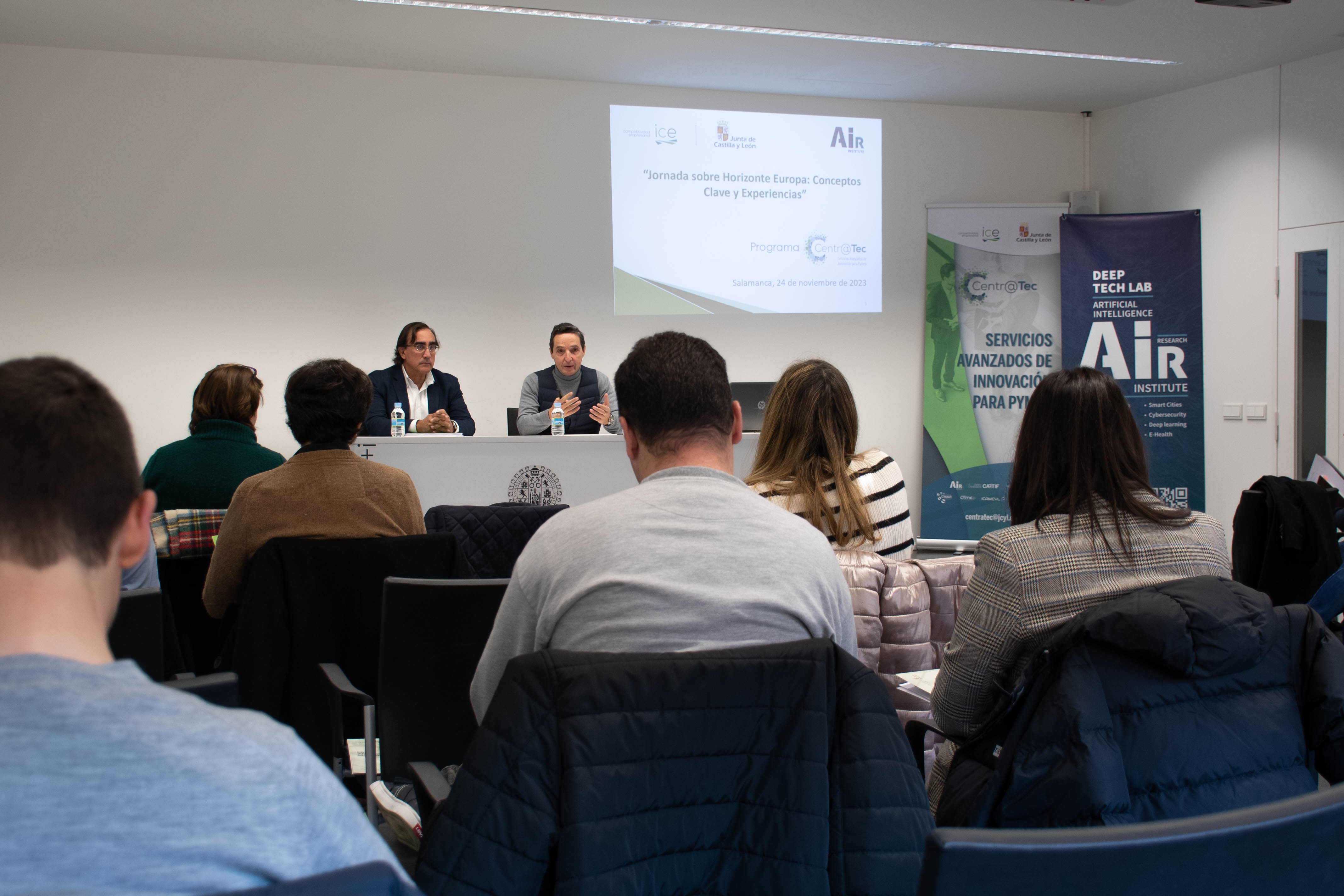
The meeting started with a welcome speech from José Francisco Diego, Territorial Delegate of the ICE in Salamanca, and Juan Manuel Corchado, Professor at the University of Salamanca, who is leading the Centr@tec programme through the AIR Institute. Corchado also presented the characteristics, opportunities and aid options made available by the Centr@tec programme for SMEs in Castilla y León.
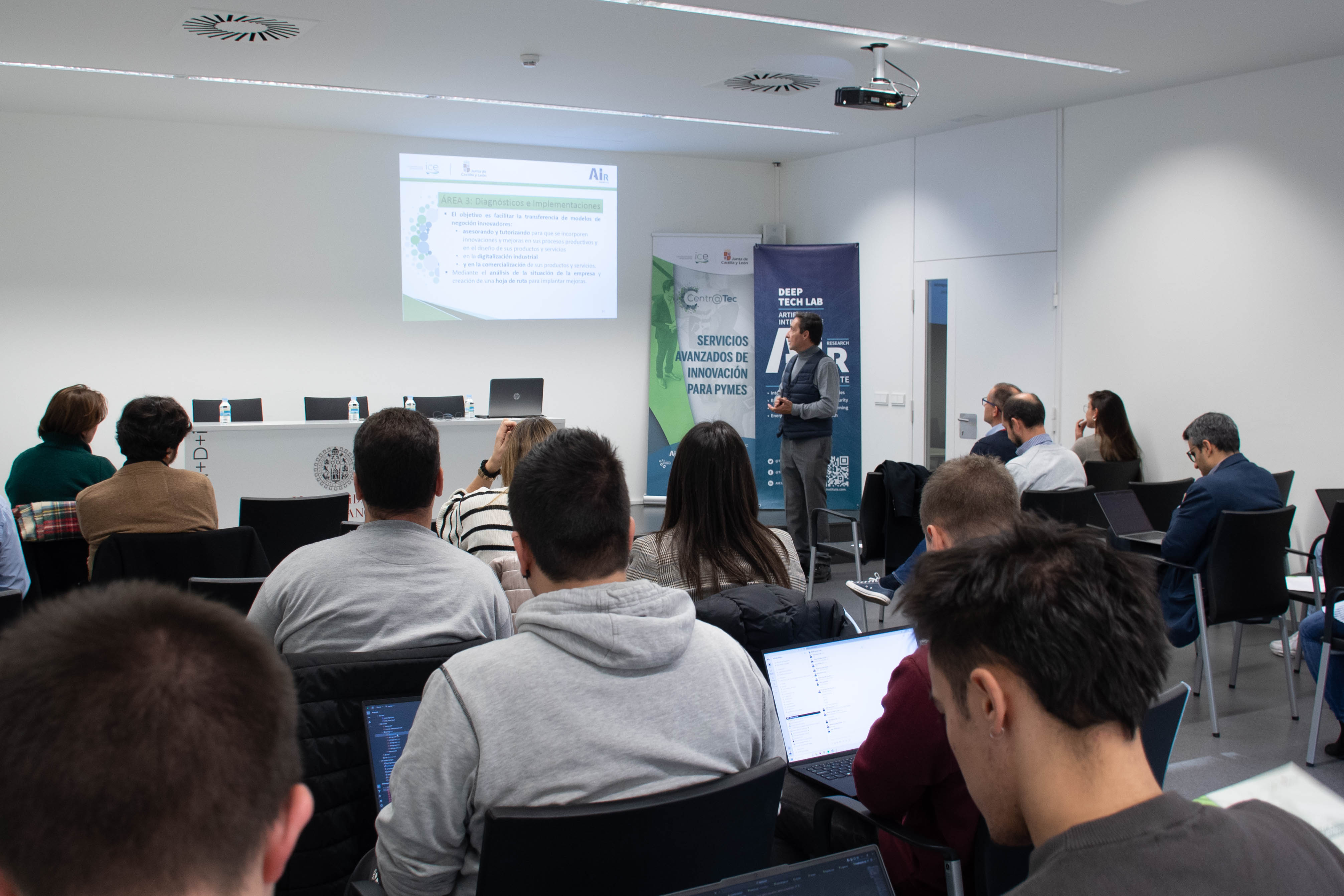
The session continued with the participation of Marta Plaza, researcher at the AIR Institute, who introduced the audience to the context, objectives and upcoming opportunities of Horizon Europe. She also provided some tools to make proposals and complete them successfully.
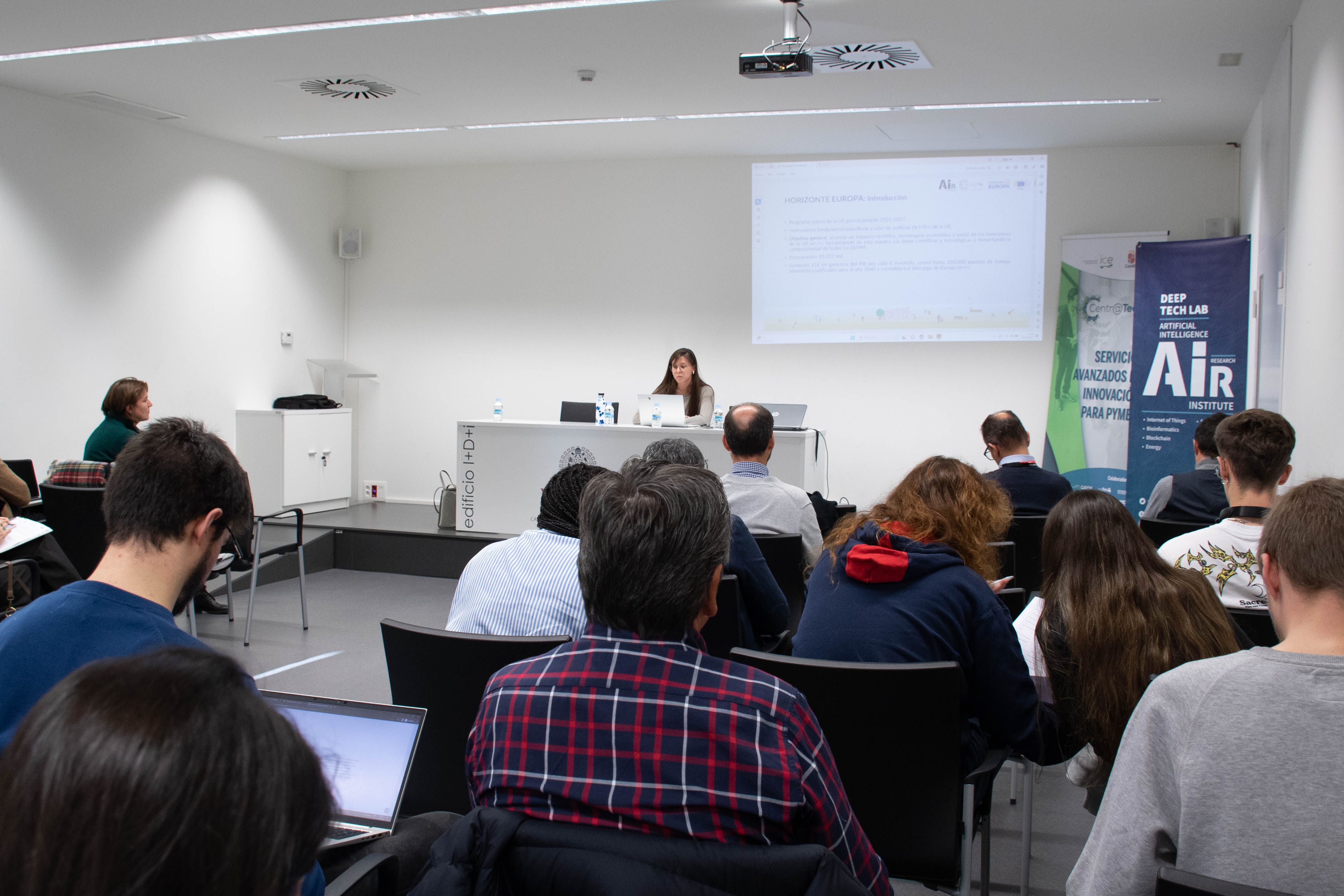
Horizon Europe success stories
The participants were also able to learn first-hand about some of the practical experiences of companies in Horizon Europe projects. Among them, the presentation of the TEBRIO company by its CEO, Adriana Casillas Barros, who explained that they are the first Spanish insect processing company that has achieved the ISO-9001 quality certificate, that has its own technology patented in 150 countries and is now immersed in an ambitious expansion process that has the support of national and international entities such as the ERDF Funds.
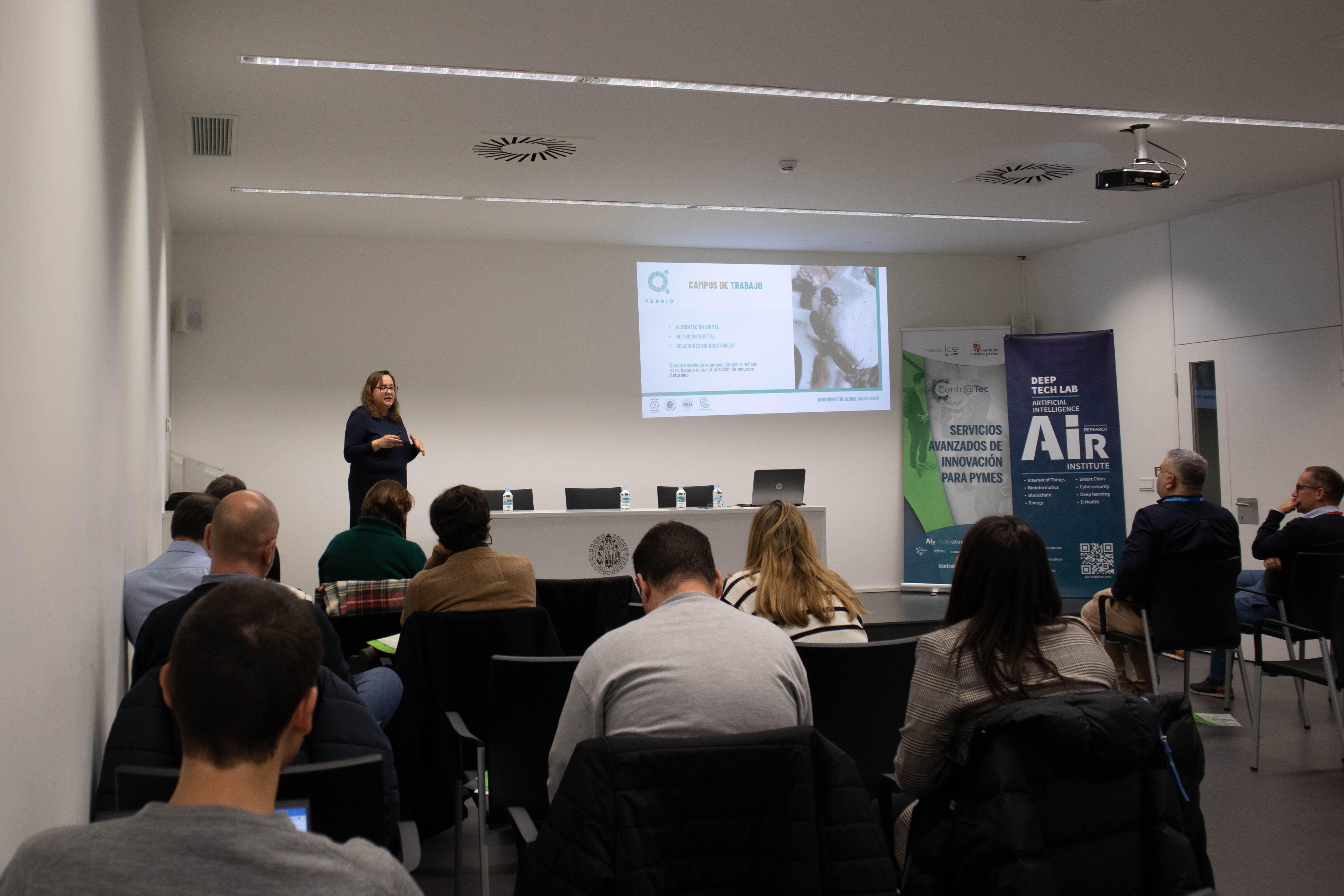
Javier Parra from QETEL (AIR Institute) presented two interesting European projects related to disruptive technologies such as cybersecurity (CERTIFY) and artificial intelligence (dAIEDGE). These two initiatives are supported by European funds aimed at covering and disseminating technological gaps in EU countries.
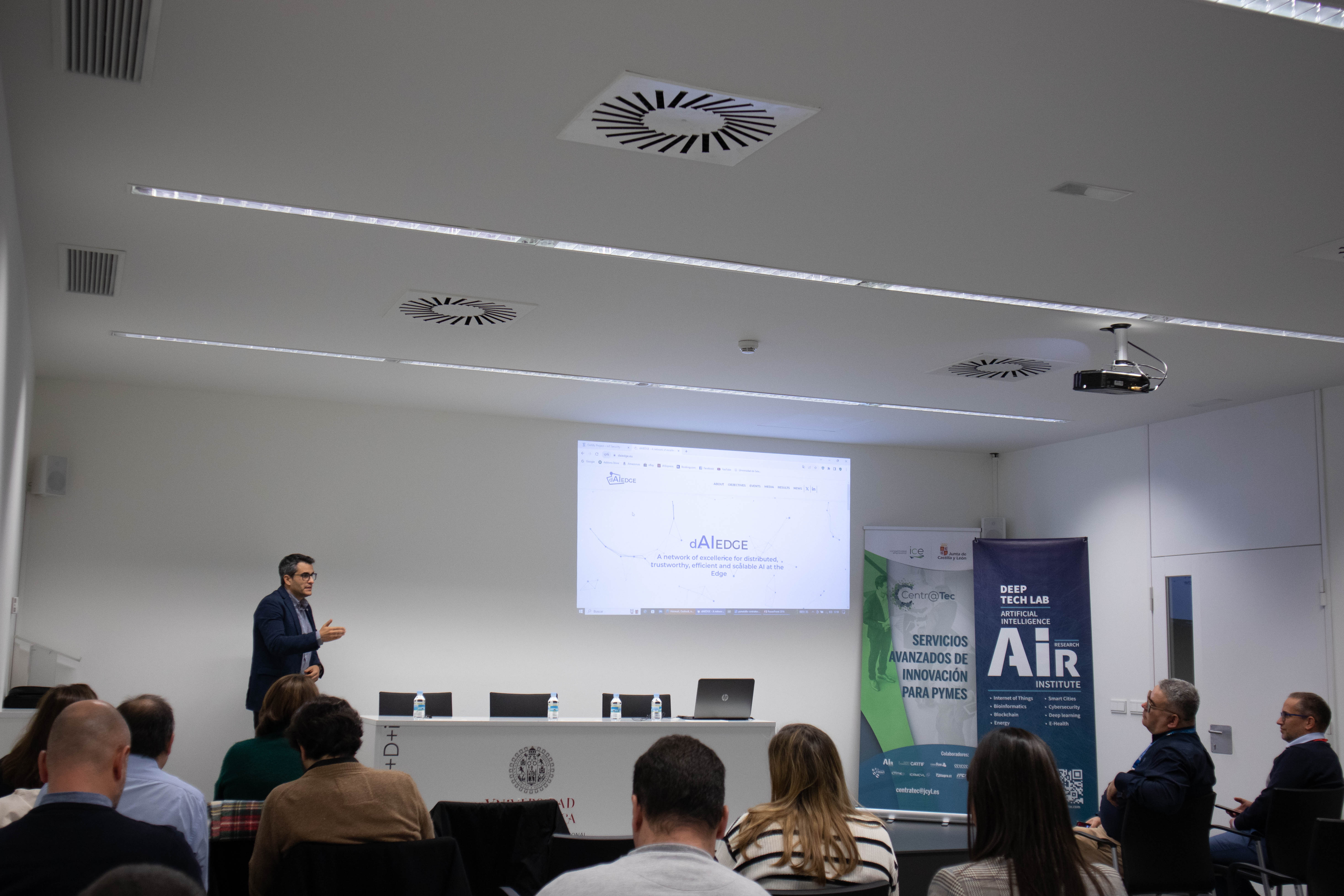
Within the use cases, Jorge Hernández and Ricardo Costa explained the experiences of the "European Campus of City-Universities (EC2U)", a pan-European multicultural alliance promoted by the European Commission through the Directorate-General for Education to strengthen strategic partnerships across the EU between higher education institutions and to foster the emergence of university networks that will allow students to obtain a degree by combining studies in several countries, contributing to the international competitiveness of European universities.
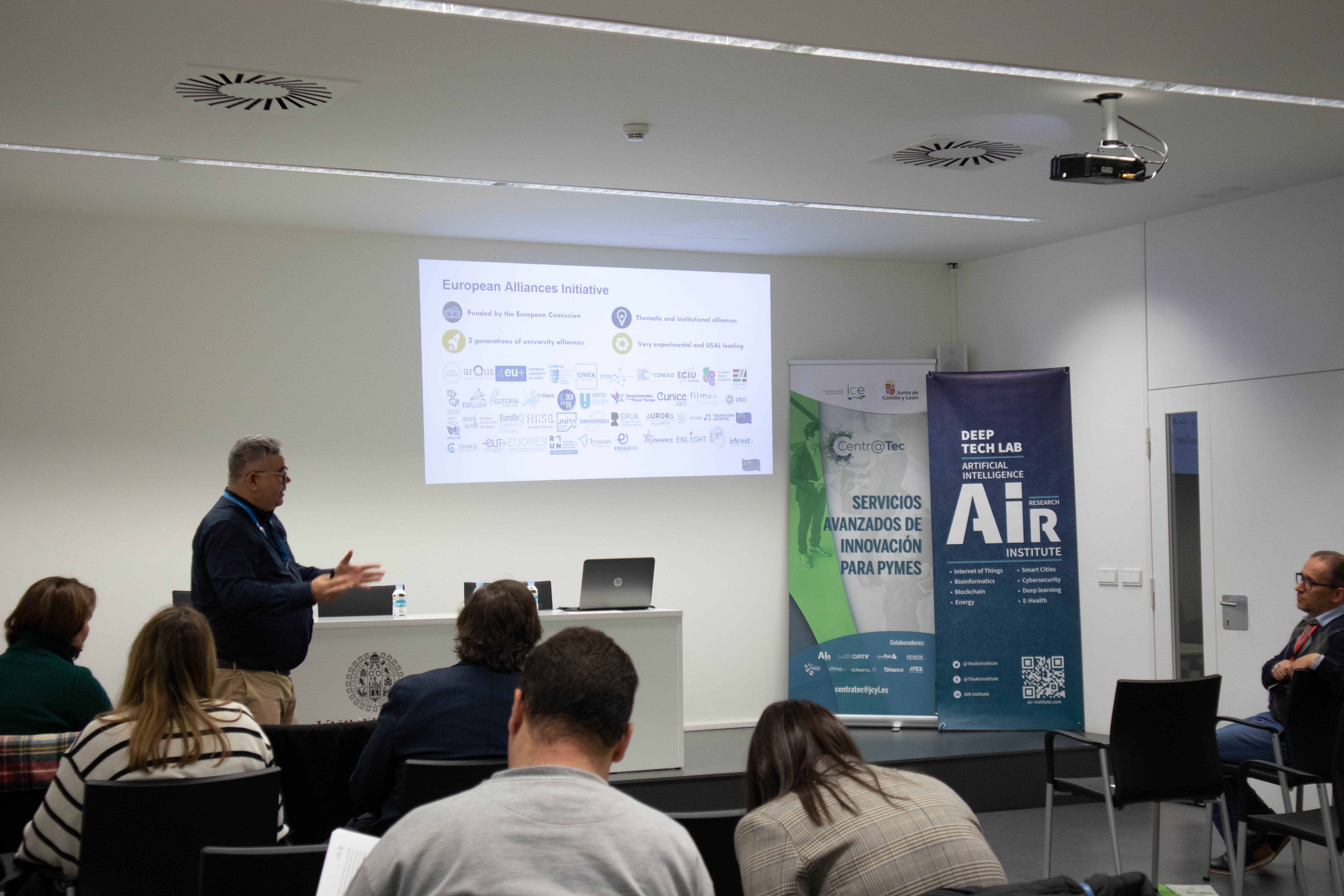
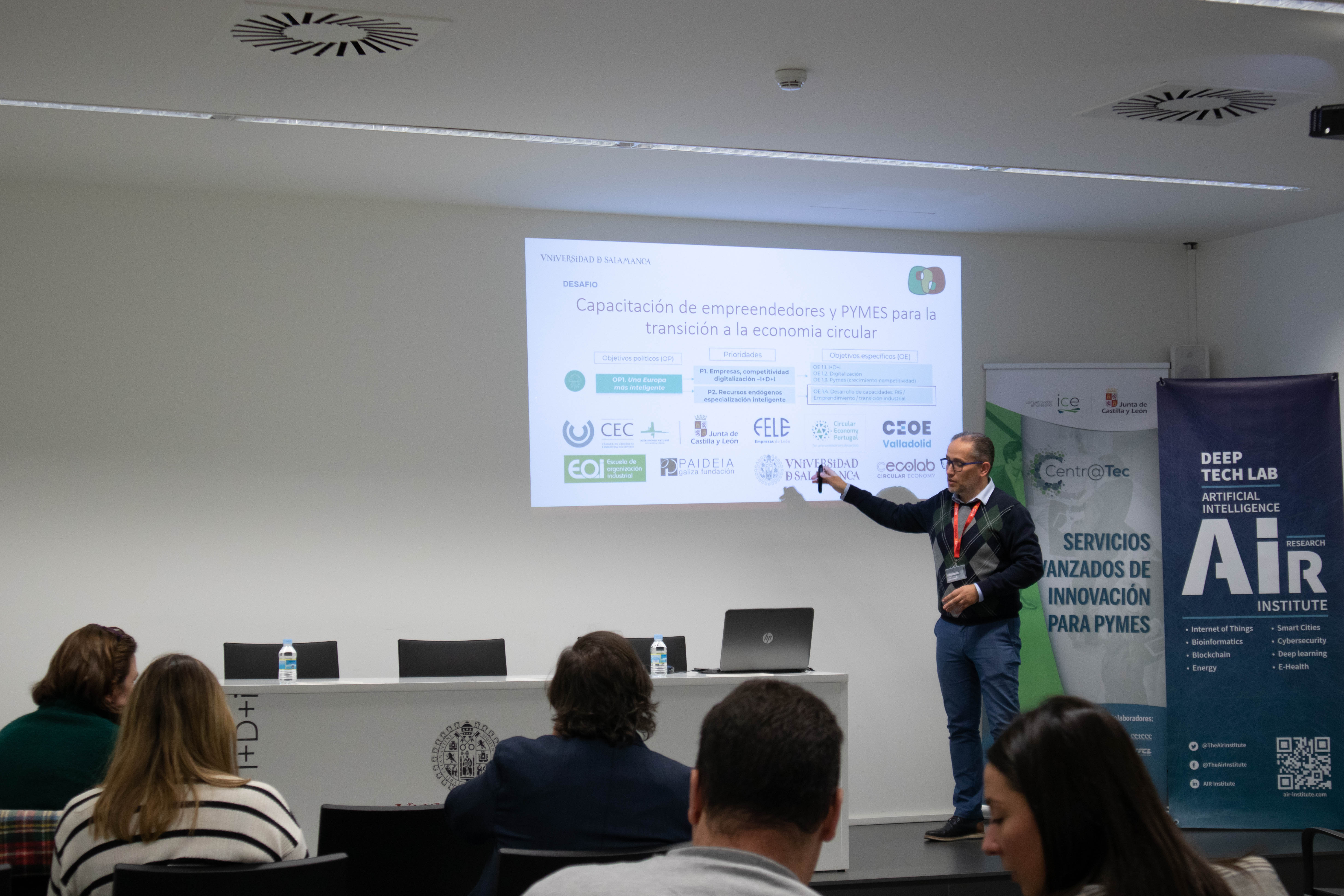
The meeting ended with a presentation by Ana Trigueros, from the Institute for Business Competitiveness of Castilla y León (ICE), who gave a talk on "Promoting regional participation in European programmes - Support from the ICE and advanced services of the EEN Network". He explained the purpose of this type of actions to promote regional innovation, increase the return obtained from this type of programmes and improve the positioning of Spanish entities in Europe.
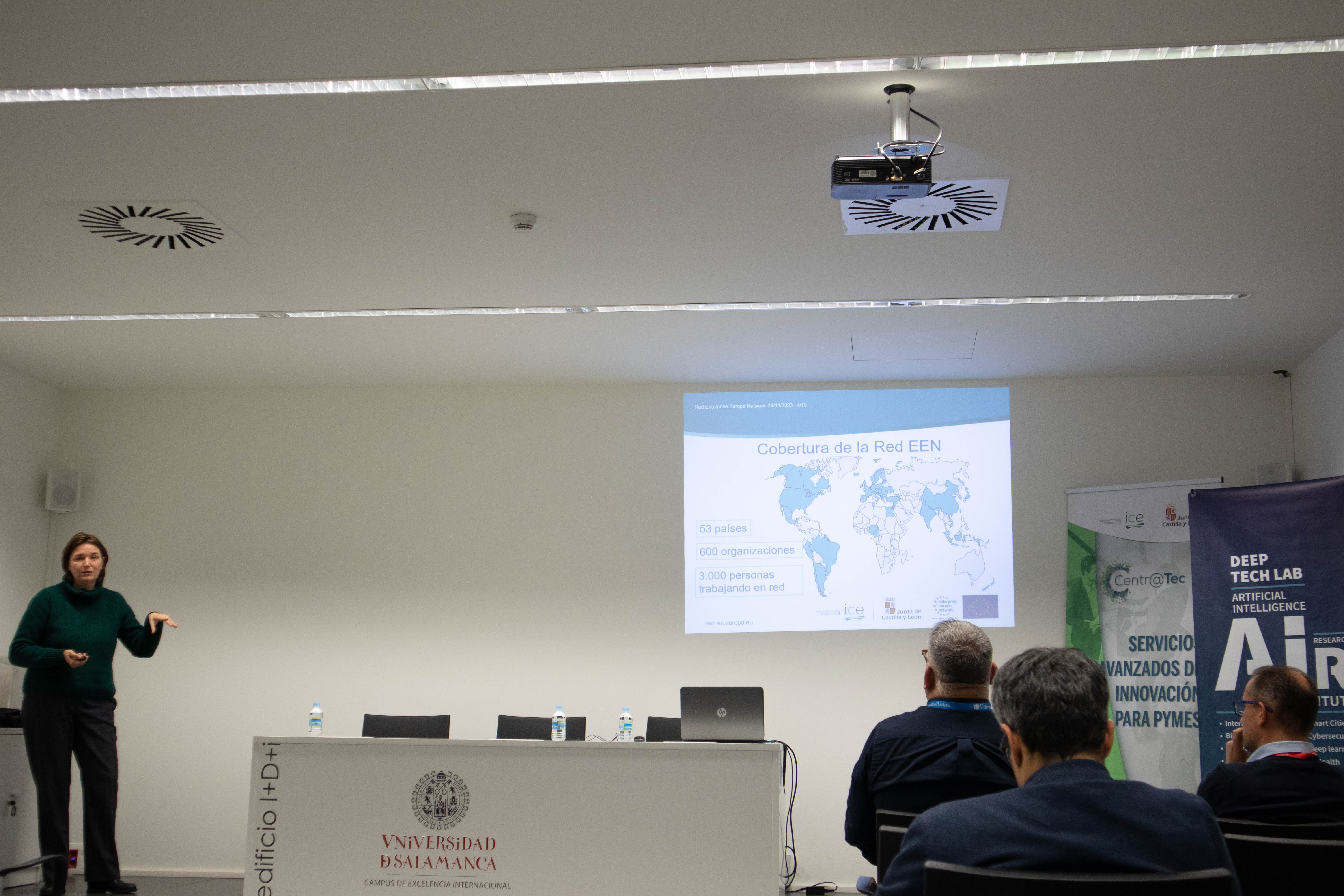
Undoubtedly, a very informative meeting promoted by the Centr@tec programme, which will help companies in their expansion and internationalisation plans.